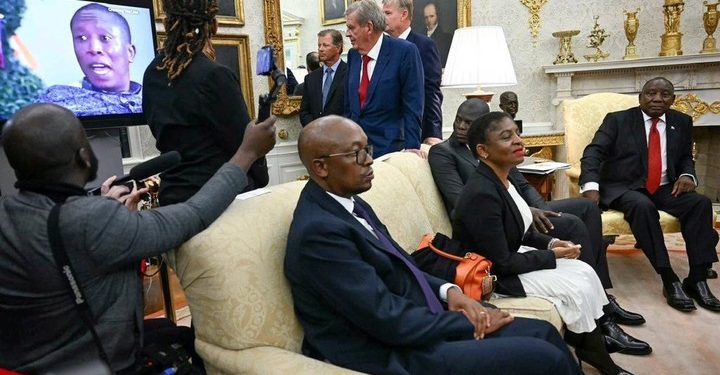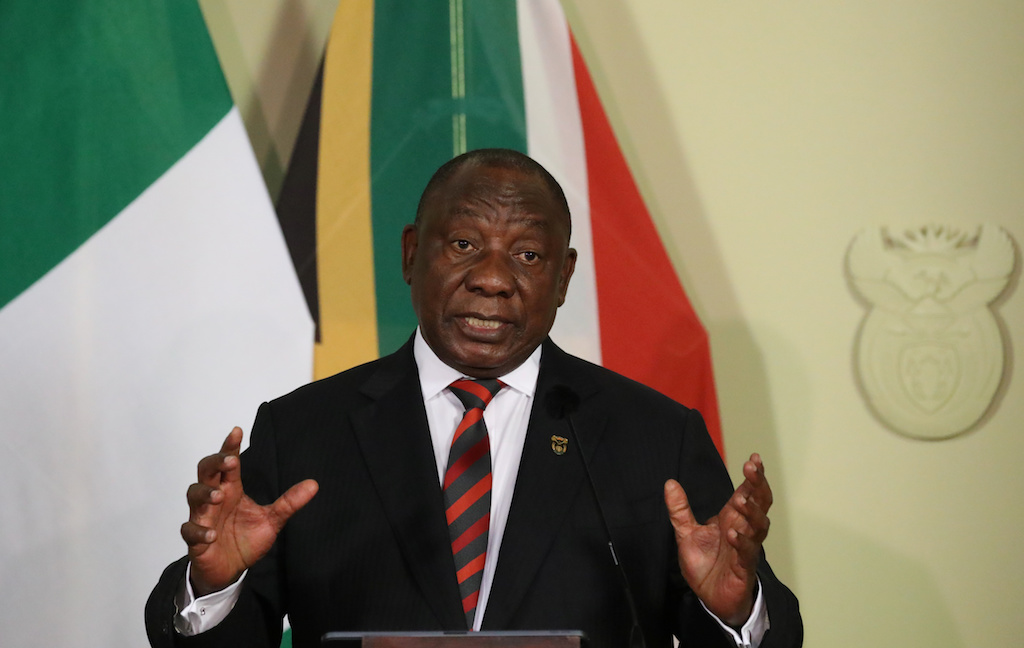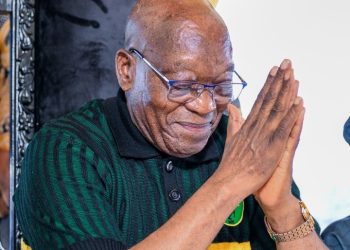A moment of diplomatic contact in the Oval Office has stirred significant discussion in South Africa. A gesture by Johann Rupert toward Minister Ronald Lamola has drawn sharp criticism, with the issue gaining traction across the country.
During a recent international gathering, Rupert, a prominent South African businessman, was seen tapping Lamola, the Minister of International Relations and Cooperation, on the shoulder in a manner many viewed as condescending. The incident, which took place in the presence of former U.S. President Donald Trump, has fueled conversations about power dynamics in South African politics, as well as questions of dignity and representation.
Sihle Lonzi, a member of the Economic Freedom Fighters (EFF), highlighted the event in a social media post. Lonzi noted that Lamola had traveled over sixteen hours to attend the meeting, only to be treated in a way that some perceived as disrespectful.
Travelled more than 16 HOURS just to be tapped on the shoulder by Johann Rupert like a BOY!
This must be the first Minister of International Relations, who participates in an international relations meeting and DOES NOT UTTER A SIGNLE WORD😭 pic.twitter.com/M9HXGT0nLO
— Sihle Lonzi (@SihleLonzi) May 22, 2025
The context of the interaction adds further complexity. Clips of Julius Malema, leader of the EFF, chanting a provocative song were reportedly shown during the meeting. Rupert then remarked to Trump that Lamola had “turned out well” compared to Malema’s trajectory, referencing their shared history in the African National Congress Youth League (ANCYL).
However, the physical act of Rupert patting Lamola’s shoulder—described by Lonzi as being handled “like a boy”—has become the focal point of public discontent. Critics argue the gesture undermined Lamola’s position as a senior official representing South Africa internationally. Lonzi also pointed out that Lamola remained silent throughout the discussion, raising concerns about his ability to assert South Africa’s stance in such settings.
The episode reflects deeper tensions in South African society, particularly around race, class, and historical power imbalances. To many, Rupert symbolizes persistent post-apartheid inequalities, often associated with white monopoly capital. The image of a white billionaire appearing to belittle a Black minister on an international stage has resonated strongly among those who believe South African leaders should project strength and sovereignty abroad.
Questions remain over whether Lamola’s silence was a strategic choice to avoid confrontation or a missed opportunity to challenge the narrative. The incident underscores the need for South African leaders to be acutely aware of how their interactions are perceived, both domestically and globally. Allowing such gestures to go unchallenged risks reinforcing outdated stereotypes and diminishing the country’s standing.
Furthermore, the event raises questions about the expectations placed on South African ministers in diplomatic roles. Effective representation requires not only policy expertise but also an awareness of symbolic significance, given the nation’s complex history. Lamola’s subdued response has led some to question whether he fully grasps these expectations.
While it would be unfair to judge his entire tenure on a single exchange, this incident highlights the importance of strong, confident representation in international engagements. South Africans deserve leaders who can navigate such situations with dignity, ensuring the nation’s voice is both heard and respected.






















